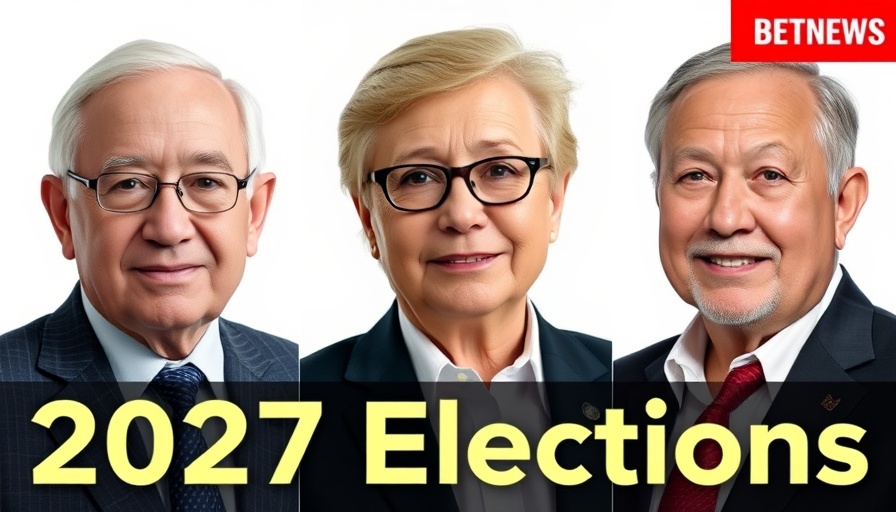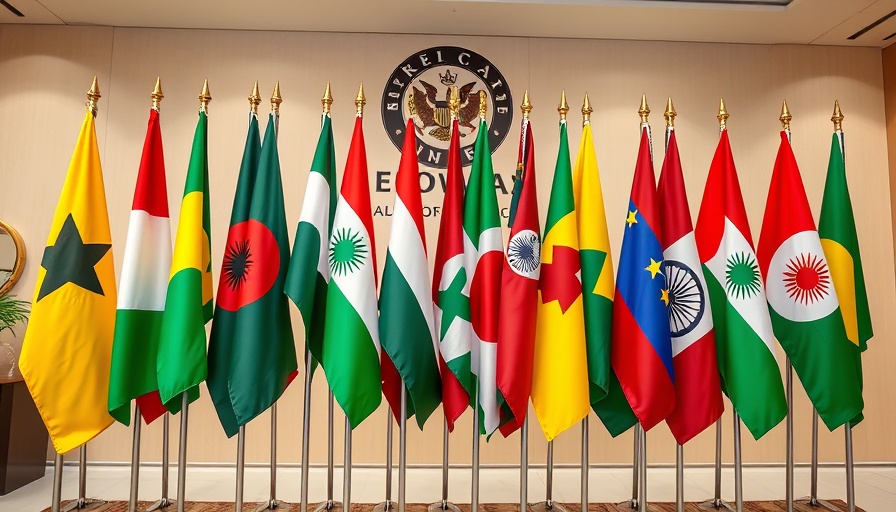
Exploring the ADC Coalition as a Game-Changer for Nigeria's Political Landscape
As Nigeria gears up for the pivotal 2027 elections, the political atmosphere is increasingly charged with fresh alliances and a reimagined opposition front. Among these emerging forces is the African Democratic Congress (ADC), which is striving to galvanize significant change in response to the long-standing dominance of the All Progressives Congress (APC). This article will delve into the significance of the ADC coalition and the broader implications it holds for Nigerian politics.
In 2027 Elections: Can This ADC Coalition Change Nigeria’s Politics?, the discussion dives into the evolving political landscape in Nigeria, exploring key insights that sparked deeper analysis on our end.
ADC Coalition: A Milestone in Nigerian Politics?
The ADC coalition, led by notable figures such as former Vice President Abubakar Atiku and Nasir El-Rufai, seeks to consolidate opposition efforts, building what many view as a necessary response to years of unmet political promises and perceived governance failures. This coalition represents a unique opportunity for divergent political voices to unite in strength against the ruling APC, which many believe has historically stifled opposition. The formation of this alliance has generated varied perspectives among Nigerian citizens, with supporters heralding it as a fresh beginning for a more inclusive governance model, while critics raise questions about its sustainability in the long run, citing concerns of internal conflicts and lack of unity.
Criticism of the Coalition: Who's Really Leading Nigeria?
A significant critique of the ADC's coalition is the composition of its membership. Many of the politicians involved have longstanding histories in Nigerian politics, some of which have resulted in policies that may be seen as failures. This has led to skepticism among the populace regarding their ability to lead a new political agenda. A critical question arises: with familiar faces reshaping the political landscape, how can the electorate trust that this coalition will bring about genuine reform rather than merely repackaging old leadership? Critics argue that the same politicians who have contributed to the nation's current issues cannot suddenly be transformed into agents of change.
Political Dynamics and Power Shifts: The Role of EFCC
Examining the political dynamics even further, the utilization of the Economic and Financial Crimes Commission (EFCC) to investigate opposition figures raises eyebrows. Some analysts claim this targeted approach serves to suppress dissent ahead of the elections. Peter Amed, a political analyst and former chairman of the Inter-Party Advisory Council (IPAC), voiced concerns about the selective nature of these legal actions, suggesting that they exist not solely for justice but as a mechanism to undermine the opposition's credibility. This situation exemplifies the ongoing tensions between the ruling party and emerging coalitions, underscoring the high-stakes nature of the impending electoral battle.
The Path Forward: Observations on the Electoral Process
Nigeria’s electoral process has suffered from historical failures characterized by poor management and the complicity of institutions designed to safeguard democracy. If the ADC and its allies hope to unseat the APC, they need not only to mobilize citizens but to demand electoral reforms that will assure transparent processes. Without an overhaul of the mechanisms that oversee elections and restore public confidence, any electoral coalition runs the risk of being seen as another failed initiative.
Future Predictions: Where is Nigeria Going?
Looking forward, how might the ADC coalition redefine Nigeria's political landscape? Should they effectively present a united front and address the electorate's concerns directly, there is a significant potential to shift the balance of power. However, failure to overcome internal disputes and the ghost of previous political antics might hinder their objectives. The fate of the ADC likely hinges upon the ability of its leaders to create a cohesive narrative that resonates with the electorate's aspirations for accountability and representation. As the elections approach, how these factions navigate their alliances and distinct political philosophies will hold implications for Nigeria’s future.
Concluding Thoughts: Importance of Civic Engagement
Movements such as the ADC coalition can inspire renewed interest and engagement in local governance, empowering citizens to advocate for their needs and demands at the ballot box. As Nigeria stands on the cusp of a crucial electoral cycle, it’s essential for the populace to critically assess the authenticity of their political leaders and bravely champion the causes that matter most. This coalition may indeed be a game-changer, but only if it can wield its influence effectively and gain the trust of the Nigerian people.
 Add Row
Add Row  Add
Add 


Write A Comment